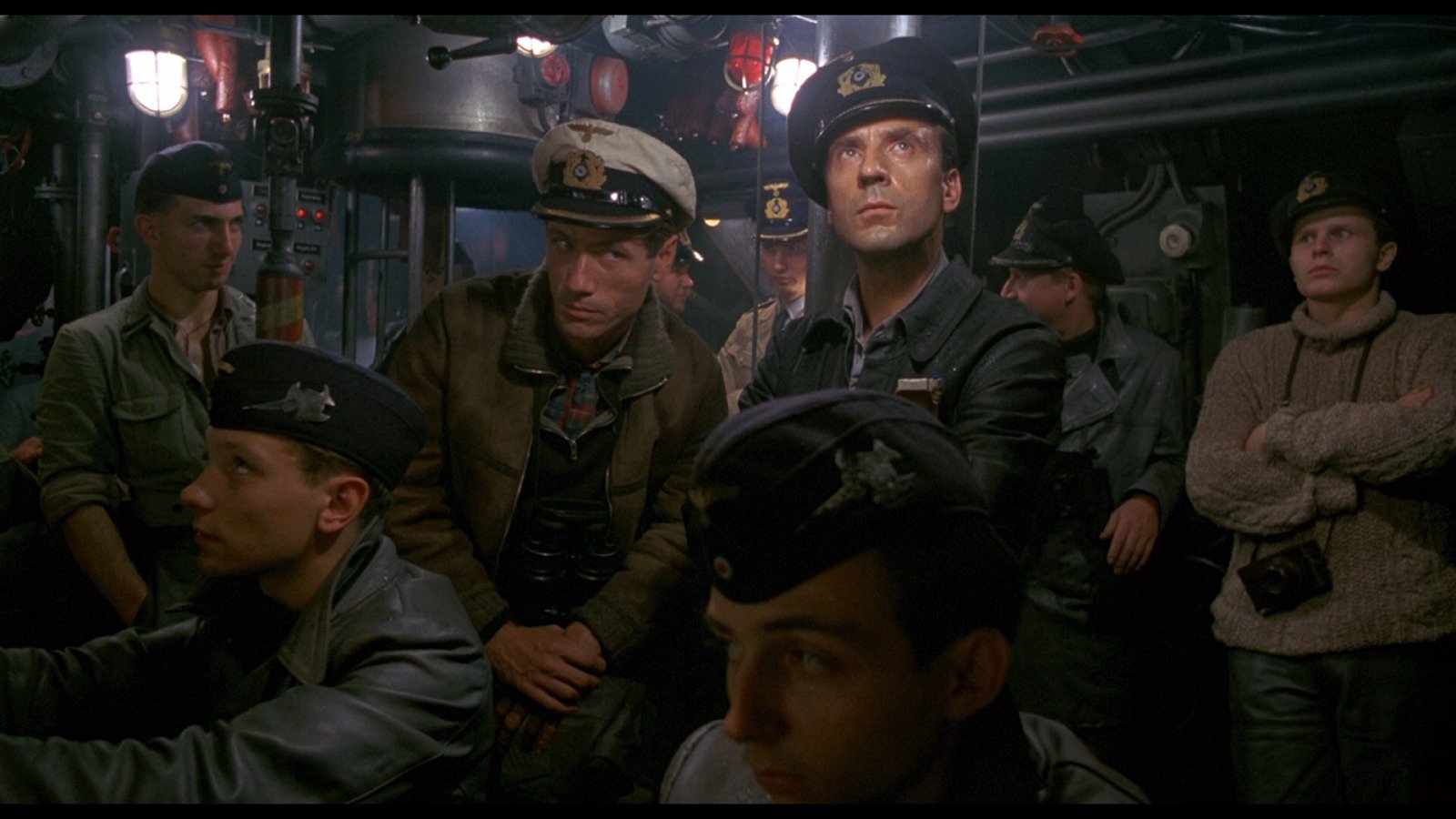Das Boot (1981)

Das Boot (1981) is a German war film directed by Wolfgang Petersen, adapted from the 1973 novel of the same name by Lothar-Günther Buchheim. Set during World War II, it follows the experiences of a German U-boat (submarine) crew in the Battle of the Atlantic. The film offers an intense, harrowing portrayal of life aboard the submarine as the crew faces the dangers of the sea, Allied forces, and the psychological strain of war.
The plot revolves around a war correspondent (Herbert Grönemeyer) who joins the U-96 submarine to document its mission. Under the leadership of Captain Henrich Lehmann-Willenbrock (Jürgen Prochnow), the crew embarks on a perilous journey that tests their endurance and spirit. They engage in deadly encounters with British destroyers, narrowly avoid depth charges, and endure long periods of isolation, hunger, and fear.
The film’s meaning transcends a typical war movie by highlighting the futility of war and the shared human experiences of soldiers on all sides. Rather than glorifying battle, Das Boot focuses on the claustrophobic, nerve-wracking life of the sailors, showing that even the supposed “enemies” are ordinary men struggling to survive. The tension between duty and the desire to return home alive permeates the film, creating an emotional depth that resonates with audiences.

Das Boot also raises questions about nationalism and loyalty. The crew is shown to be skeptical of Nazi propaganda, with the captain especially expressing cynicism toward the German leadership. This humanizes the characters and underscores the disillusionment with the larger political motivations behind the war.












